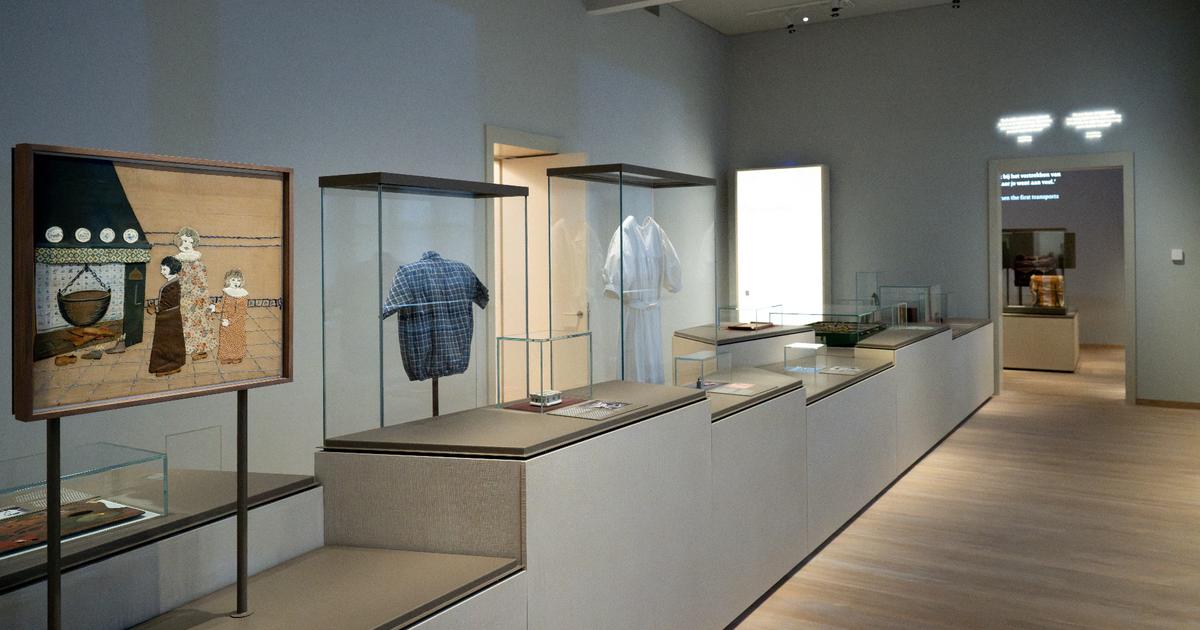Enlarge image
The lighthouse of Alexandria (depiction from the 18th century), one of the seven wonders of the ancient world, was built in the 3rd century BC.
Chr.
Photo:
Print Collector / Getty Images
Almost two millennia ago blood flowed on the streets of Alexandria. Those who killed were Egyptians and Greeks. Those who were killed were Jews. It was the first pogrom in history in AD 38. From the writings of a witness, the Jewish scholar Philo of Alexandria, we know today the terror that befell the Jews: “They were killed, dragged through the whole city, kicked and so beaten that not a single limb of their bodies was left to be able to bury. "
These atrocities in the middle of the Roman-Greek world were slain, stoned, stabbed and burned. The murderers were in a blood frenzy. When they wanted to burn Jews but couldn't find enough firewood, they took scrub and scrub so that their victims perished more in the smoke than in the flames. Philo continues: "Even while they were still alive, they tied their feet together by the ankles, dragged them around, jumping on their bodies and crushing them."
How could this happen?
Since the conquest of Egypt by Alexander the Great, Alexandria had become an important center of Jewish life.
In Alexandria there was probably the largest diaspora community in the world at that time.
The Jews made up up to two fifths of the Alexandrian population (two of the five quarters were predominantly Jews).
But Philo spoke of a "long-smoldering hatred" between Jews and Greeks in the city.
It is possible that the two groups were played off against each other by the Hellenistic kings of Egypt.
Political calculation dictated the rulers to lean sometimes on one group, sometimes on the other.
In fact, numerous conflicts have been documented in which Jews and non-Jews faced each other.
Reciprocal allegations of orgies
There were also cultural differences.
Philo wrote that at the Greek communal banquets, the symposia, people fell on each other drunk.
The famous traditional dinners, according to Philo, are "filled with nonsense", instead of philosophy Plato had only love for men in his head, and anyone who goes to such a banquet as a young man must expect to become a "toy for pederasts".
Philo had a clear opinion about the culture of the Greeks.
The ideal that he contrasts with the alleged den of sin of the symposium is the Sabbath.
Enlarge image
Philosopher Philo of Alexandria (painting around 1630): "Hatred that has been smoldering for a long time"
Photo: Sepia Times / Getty Images
But Philo was not the first to polemicize in this way.
He was the one who responded.
The Greek writer Plutarch, for example, had adopted a similar tone towards the Jews.
Philo responded to defamations of the Jewish banquet culture as Dionysian orgies and turned the tables.
This hostile exchange of blows could also be felt in the multicultural society of Alexandria: Jews and Greeks accused each other of "godlessness".
But none of this is enough to explain a pogrom.
Something drastic must have happened.
The aggression was directed against the Jews only after the Roman conquest of Alexandria.
Roman rule rearranged the social hierarchy in Egypt - less for the Egyptians, but to a noticeable extent for the Jews.
In particular, tax and administrative reforms changed the relationship between the population groups.
In pre-Roman times, the Jews were naturally part of the privileged group of those peoples who stood above the Egyptians themselves in Alexandria.
Although they did not belong to the citizenry, they had the right to semi-autonomous self-government within the Greek-dominated society.
Escalation due to a surprise visit from the king
When the Romans came to power, suddenly all Alexandrians who did not belong to the citizenry were Egyptians before the law - including the Jews. They then tried to raise their status again. Whether or not they were striving for citizenship is a matter of dispute. Presumably, even then, their efforts could be interpreted differently. In the eyes of the Greek Alexandrians, the Jews sought more than they were entitled to. This could be a cause of the violence that followed.
Philo's allegations, however, are primarily directed against the Roman rulers - the legendary cruel Emperor Caligula and his governor in Alexandria, Aulus Avillius Flaccus.
His misconduct in particular apparently played an important role.
Flaccus found himself in an unfavorable position after the death of Emperor Tiberius and Caligula's takeover.
Caligula knew Flaccus as his mother Agrippina's accuser and a supporter of his political opponents.
Flaccus therefore had to win influential advocates.
Therefore, wrote Philo, he had accepted the offer of powerful Greek citizens of Alexandria, who asked him for a free hand in their agitation against the Jews.
Indeed, events came to a head without any intervention from the Roman side.
The visit of the Jewish king Agrippa I in August 38 AD finally caused the escalation. It came as a surprise. Caligula had just made Agrippa ruler of the areas northeast of the Sea of Galilee. Now the king was on his way there and only made a stop in Alexandria. But that was enough to let hatred of Jews come out openly. The Greeks and Egyptians marched, mocked Agrippa and forced the installation of images of emperors in synagogues, which desecrated them in the eyes of the Jews.
Flaccus did nothing.
The fact that the humiliation of the Jews had no legal consequences made them finally open to attack.
Alexandria's population had been shown unequivocally that the Jews had no rights.
Bloodshed ensued.
In retrospect, Flaccus justified his inaction in an edict that deprived the Jews of any basis for a demand for equal rights or satisfaction by certifying that they were not "original settlers."
The Jews were rounded up in ghettos
What was the purpose of Flaccus? If he hoped to prevent further uncontrolled actions by signaling that the law had by no means surrendered to the violence, he forgot the obvious conclusion: namely that the Jews would continue to lack any legal defense - almost an incentive for violent criminals. But it is also quite possible that Flaccus, once again put under pressure by Greek citizens, deliberately initiated the next level of violence.
In any case, the edict caused new riots. The Jews were now rounded up in ghettos - probably the first ghettos in history. Flaccus allowed the mob to attack the Jews and plunder them. "No matter where a Jew showed himself, he was stoned or beaten down - however, he was not immediately fatally hit, so that a too quick death would not quickly spare him the pain," writes Philo. It was a black day.
When Flaccus was arrested on Rome's orders and executed soon afterwards, it was not because of his role in the run-up to and during the pogrom, but because Caligula saw him as an enemy.
Caligula did not think of giving his Jewish subjects back the rights that had been taken from them.
On the contrary, he wanted to enforce the imperial cult even in Jerusalem.
The Jews of the Roman Empire were spared worse when Caligula was murdered in AD 41.
Under Emperor Claudius, the situation of the Jews improved for the time being, but equality with the Greeks was a long way off.
In the years that followed, there were repeated clashes between Jews and non-Jews.
A generation after the first pogrom, all hell broke down on Alexandria's Jews for the second time.
End of the Jewish diaspora
In AD 66, the Jewish War began in Judea with a popular uprising against the Roman occupation.
As a result, riots against Jews broke out in many cities of the Roman Empire.
And in Alexandria too, the violence started all over again.
At a gathering in the city's amphitheater, Jews were cursed as enemies and spies and then attacked.
They fled, but three were captured and burned alive by the Greeks.
As a result, the city's Jews came together and attacked the amphitheater - which prompted the governor to use the Roman army.
The Jews defended themselves in battle formation, barricaded themselves.
There was a real war in the city, but the Jews had no chance.
Men, women and children were slain, their houses looted and burned.
When the Jews asked for mercy, the Romans withdrew.
But the Alexandrines who were advancing behind the lines could only be dissuaded from the work of destruction by force.
The complete annihilation of the Jewish community had just been averted.
The annihilation followed half a century later when the Romans put down rebellions among the Jewish population from Egypt to Mesopotamia.
In Alexandria, Jews had destroyed Greek and Roman sanctuaries and killed thousands of non-Jews.
The Romans ended the uprisings with all their might.
Almost nothing was left of the once so large Jewish community in Alexandria.
Generations of mutual hatred, first brought to the fore in 38 brutality, had finally led to the end of the Jewish diaspora in ancient Egypt.








/cloudfront-eu-central-1.images.arcpublishing.com/prisa/57WJQXB25VEW3N6XHSY63XO6YQ.jpg)
